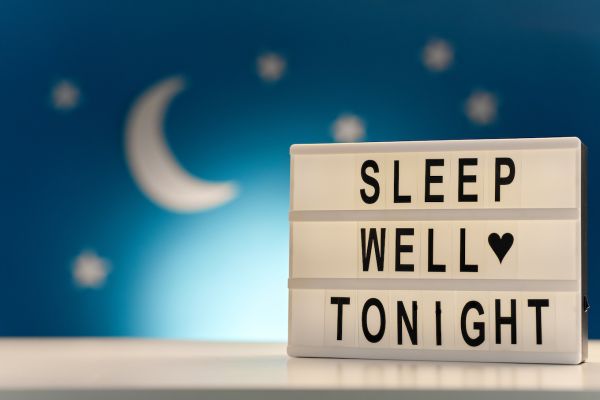What is Sleep Hygiene?

What is “Sleep Hygiene”
The term “Sleep Hygiene” is all too well known to anyone who has ever struggled with insomnia, or poor sleep in general. Whether it was with your doctor, or doctor google, you invariably have come across this term at some point while researching what you can do to sleep better. And if you happen to take a board licensing exam, the answer to the question of improving sleep is in fact sleep hygiene, and not prescription medications as one may believe.
So first off, let’s talk about insomnia versus non-restorative sleep (or poor sleep as it’s called). Insomnia can be short term (less than 3 months) which is often in response to a life stressor, or it can be chronic. Chronic insomnia is defined as difficulty falling asleep or maintaining sleep more than 3 times a week for longer than 3 months. Difficulty falling asleep means it takes longer than 30 minutes to fall asleep, and difficulty maintaining sleep means you spend more than 30 minutes awake each night after having been asleep for a period of time. In addition to the difficulty sleeping, this lack of sleep must impair your day-to-day life. This can be through daytime fatigue, mood swings, increased errors, poor concentration, etc.
True chronic insomnia is less common than people who intermittently have difficulty sleeping. Remember, you need to have problems more than 3 times a week, for longer than 3 months, for it to meet criteria. And it has to impact your day-to-day life. For true insomnia, the best treatment we have is cognitive behavioral therapy in addition to improved sleep hygiene. For the more common condition of difficulty with sleep, that’s where sleep hygiene can play a major role.
So what is sleep hygiene? It’s practices you can utilize to try and improve sleep quality while limiting the time it takes to fall asleep. As you’ll see below, many of these come down to common sense. But if you truly think about how often you or people you know follow these practices, you’ll be shocked just how uncommon that common sense may be.
Sleep Hygiene Recommendations
|
Recommendation |
Description |
|
Regular bedtime and rise time |
This seems simple enough, but it’s harder in practice. It means going to sleep every night at the same time (let’s say 10pm) regardless of what you’re doing. It also means getting up at the same time, even if it’s the weekend and you can sleep in, or if you were up the whole night before. |
|
Avoid napping |
Napping for longer than 1 hour total during the day will impact your ability to maintain a sleep schedule at night. Even if you slept poorly the night before, try not to nap. |
|
Limit caffeine |
Avoid any caffeine containing products (including soda) after lunch. The time between lunch and bed is enough time for most caffeine to have been metabolized from your body. |
|
Limit alcohol |
This one sounds counter-intuitive as alcohol tends to make us sleepy. Initially alcohol is sedating, but as it is metabolized it is actually stimulating. It’s why people often wake up in the middle of the night after drinking. Alcohol also negatively impacts sleep architecture (the natural REM sleep cycle) |
|
Avoid nicotine |
Nicotine is a stimulant and should be avoided at night and near bedtime. |
|
Exercise |
Daytime physical activity is encouraged 4-6 hours before bedtime. Strenuous physical activity should be avoided for 2 hours prior to bedtime. So exercise is good, but keep it to earlier in the day. |
|
Keep the sleep environment quiet and dark |
This means two things. Number one your room should be dark and quiet. Either black out blinds or an eye mask is encouraged, and depending on the environment ear plugs may also be beneficial. However, this also means avoiding the TV, cell phones and other backlit screens for at least 30 minutes before bed. It has been shown the light from these devices will impair sleep. |
|
Bedroom clock |
Avoid checking the time as you are trying to fall asleep. Looking at the clock increases cognitive arousal (wakes you up) and causes anxiety which will further impair initiation of sleep. This includes alarm clocks, phones, watches (and even bathroom mirrors if it has a built in clock). |
|
Evening Eating |
Avoid a large meal just before bedtime. A healthy and filling meal should be eaten earlier in the evening, and late night snacking should be avoided as well. |
Now that you’re an expert in the textbook version of sleep hygiene, it’s time to put it into practice. Rather than trying to tackle the entire list at once, it’s often better to pick one thing and incorporate it into your sleep routine every few days. For example, start with setting a bedtime and an alarm clock that you stick to every day – once you’ve become used to this you can look at getting rid of your bedtime Facebook binge. Just like Rome, you can’t build your foundation of sleep hygiene in just one day.
Guten nacht!